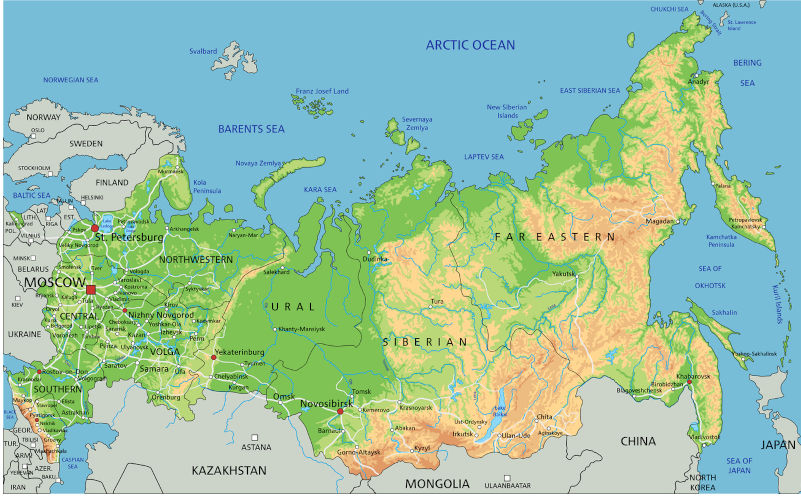Putin’s mistake in Ukraine: Moscow forced to move to Novosibirsk?
July 18, 2024
In 2004, Russia’s President Putin said the collapse of the Soviet Union “was the greatest geopolitical catastrophe of the century.” This was picked up by our hawks as a Moscow wish for more Cold War.
They should have waited for the rest of the sentence: ’Tens of millions of our fellow citizens and countrymen found themselves beyond the fringes of Russian territory.”
Putin had a point, epitomised by the fate of the pro-Russian South Ossetian people stranded in Georgia versus that of the Russian-speaking minority stranded in Ukraine.
Borders arbitrary
In Soviet days, borders between republics were often decided more by politics or geography rather than language or culture. So the Ossetian people straddling the Caucuses Mountains were split into two, with the part in the north remaining in Russia and the part in the south arbitrarily placed in the Soviet Republic of Georgia.
The Russian-speakers in Ukraine were simply told they were no longer part of Russia, that henceforth they had to think of themselves as Ukrainians.
In Soviet days that did not matter much; they were all part of the great Soviet Union.
Putin’s concern justified
Following the break up of the Soviet Union, however, it did matter. To protect South Ossetia, Moscow stationed peace-keeping guards along the frontiers with Georgia.
When Georgia on August 8, 2008, attacked into the South Ossetian capital of Tskhinvali, killing Russian peace-keepers at the border, Moscow retaliated immediately with a full-scale war.
Georgia was defeated and was required to recognise South Ossetia as an independent republic.
Ukraine mistaken reliance on diplomacy
With Ukraine, Moscow relied simply on the 2014-5 Minsk Accords which had promised autonomy for some of the Russian-speakers stranded in Ukraine, in the provinces of Donetsk and Luhansk.
But for the extreme nationalists and neo-Nazis in Ukraine, the Accords were just paper. In the eight years to 2022 they managed to attack and kill an estimated 14,000 people in the two autonomous provinces.
All the while Moscow was seeking anxiously to give diplomatic teeth to the Accords - the NATO-Russia Council, the Organisation for Security and Cooperation in Europe (OSCE), and U.S.-Russia strategic stability talks, culminating in the Normandy Format with its Trilateral Contact Group.
Finally and under some domestic criticism Putin realised he had been tricked, that the West had used the Accords simply to give Ukraine time to rearm.
He decided to begin on February 22, 2022 his ‘special military operation’ against Ukraine.
But he still wanted to rely on diplomacy. Just two days after beginning the ‘special operation’ Moscow began peace talks with Ukraine, starting in Belarus and culminating in the Istanbul Communique at end of March where both sides agreed on mutual concessions to end the war just started.
But Boris Johnson intervened, telling Kiev it did not have to make any concessions to Moscow, that it could rely the West for whatever support it needed.
So instead of peace we have had a war lasting more than two years, hundreds of thousands dead on both sides, and a Nato-dominated West ready to supply even more weapons to keep the war going.
Worse, Moscow now faces the prospect of a NATO allied Ukraine only 313 miles distant and well within the range for launching a no-reply nuclear attack.
The no-reply nuclear threat: no time to react if attacked
Putin should be rethinking. From the start if Moscow had relied on the South Ossetia model of peace-keepers along the borders of the two autonomous provinces he could have begun his ‘special operation’ the moment hostile forces intruded.
Instead, by relying on diplomacy he had to dither and delay while many were killed. Worse, he now also faces a hostile Finland, freshly recruited by NATO thanks to the Ukraine war, only 507 miles from Moscow and also within range for launching a no-reply nuclear attack.
Some are now suggesting Russia should move its capital the 2098 miles from Moscow to Novosibirsk in Siberia, and far distant from any likely enemy.

